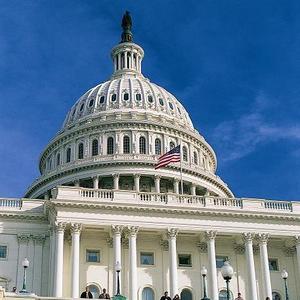Bipartisan group of 32 senators calls for strong biodiesel RFS

February 9, 2015
BY The National Biodiesel Board
A bipartisan group of 32 U.S. senators wrote to the EPA Feb. 9 calling for the agency to quickly approve strong biodiesel volumes under the RFS for 2014, 2015 and 2016.
Highlighting biodiesel’s track record as the only EPA-designated advanced biofuel under the RFS to reach commercial-scale production nationwide, the senators expressed concern about ongoing delays in implementing the program and called on the Obama administration to get the RFS back on track. The letter can be found here.
The EPA delays have created “tremendous uncertainty and hardship for the U.S. biodiesel industry and its thousands of employees,” the senators wrote. “Plants have reduced production and some have been forced to shut down, resulting in layoffs and lost economic productivity. We urge you to get biodiesel back on schedule under the statutorily prescribed renewable volume obligations (RVO) process and quickly issue volumes for 2014 at the actual 2014 production numbers. We also hope you move forward on the 2015 and 2016 biodiesel volumes in a timely manner.”
Advertisement
The senators also pointed to a recent decision by the EPA to effectively streamline biodiesel imports from Argentina under the RFS. They said the EPA should take into account the anticipated increase in Argentinian imports in setting biodiesel volumes to prevent the displacement of domestic production.
Sens. Heidi Heitkamp (D-N.D.), Roy Blunt (R-Mo.), Chuck Grassley (R-Iowa) and Patty Murray (D-Wash.) led the letter.
Advertisement
“On behalf of biodiesel producers across the country I want to thank Sens. Heitkamp, Blunt, Grassley and Murray, as well as all of the other senators who signed the letter, for their leadership on this issue,” said Anne Steckel, vice president of federal affairs at the National Biodiesel Board, the industry trade association. “These senators understand that we need clear, stable policy to break our dangerous dependence on petroleum and diversify our fuel supplies with cleaner alternatives that create jobs and economic activity in the U.S.”
“There is absolutely no reason for continued delays in the biodiesel volumes in the RFS. This could be done tomorrow,” Steckel added.
Biodiesel, made from a variety of resources including soybean oil, recycled cooking oil and animal fats, has plants in nearly every state in the country and supports some 60,000 jobs. According to the EPA, biodiesel reduces greenhouse gas emissions by 57 percent to 86 percent compared with petroleum diesel.
The EPA is more than two years late in establishing biodiesel volumes under the RFS after failing to establish a requirement for 2014 and 2015. The continued uncertainty under the policy has destabilized the industry, causing many U.S. production plants to stop production and lay off employees.
Related Stories
The U.S. EPA on July 8 hosted virtual public hearing to gather input on the agency’s recently released proposed rule to set 2026 and 2027 RFS RVOs. Members of the biofuel industry were among those to offer testimony during the event.
The USDA’s Risk Management Agency is implementing multiple changes to the Camelina pilot insurance program for the 2026 and succeeding crop years. The changes will expand coverage options and provide greater flexibility for producers.
President Trump on July 4 signed the “One Big Beautiful Bill Act.” The legislation extends and updates the 45Z credit and revives a tax credit benefiting small biodiesel producers but repeals several other bioenergy-related tax incentives.
CARB on June 27 announced amendments to the state’s LCFS regulations will take effect beginning on July 1. The amended regulations were approved by the agency in November 2024, but implementation was delayed due to regulatory clarity issues.
SAF Magazine and the Commercial Aviation Alternative Fuels Initiative announced the preliminary agenda for the North American SAF Conference and Expo, being held Sept. 22-24 at the Minneapolis Convention Center in Minneapolis, Minnesota.
Upcoming Events










